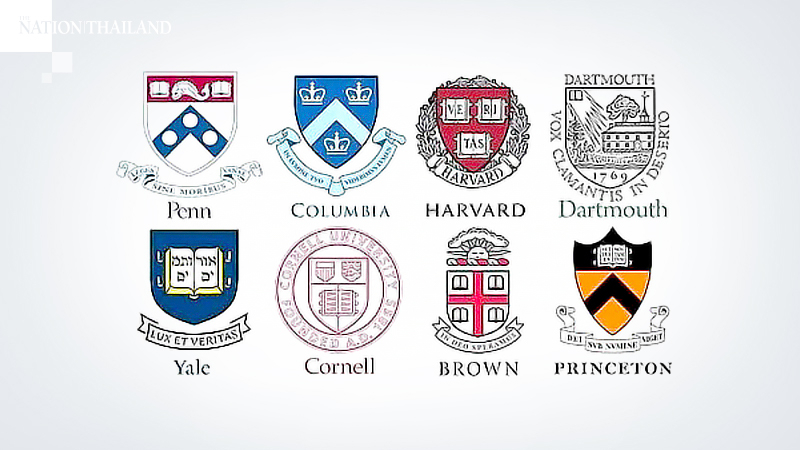
The Ivy League is canceling its winter sports seasons, the conference announced Thursday, making it the first Division I college athletics conference to do so.
The league - composed of Brown, Columbia, Cornell, Dartmouth, Harvard, Penn, Princeton and Yale - made its decision amid an unprecedented spike in the coronavirus pandemic nationally. New coronavirus cases in the United States reached a record total of 145,835 on Wednesday, a number that was on track to be topped Thursday.
"Consistent with its commitment to safeguard the health and well-being of student-athletes, the greater campus community and general public, the Ivy League Council of Presidents has decided that league schools will not conduct intercollegiate athletics competition in winter sports during the 2020-21 season. In addition, the Ivy League will not conduct competition for fall sports during the upcoming spring semester. Lastly, intercollegiate athletics competition for spring sports is postponed through at least the end of February 2021," the conference announced.
The canceled winter sports include men's and women's basketball, men's and women's ice hockey, men's and women's squash, men's and women's swimming and diving, men's and women's indoor track and field, and wrestling.
Ivy League athletes in fall and winter sports will not lose a season of college eligibility, the conference announced.
"Throughout the last nine months," the Ivy League Council of Presidents said in a joint statement, "we have asked our campus communities to make extraordinary adjustments in order to do our part in combating the global pandemic and to safeguard the health and wellbeing of our students, faculty members, staff and the communities in which they live and work.
"Regrettably, the current trends regarding transmission of the COVID-19 virus and subsequent protocols that must be put in place are impeding our strong desire to return to intercollegiate athletics competition in a safe manner. Student-athletes, their families and coaches are again being asked to make enormous sacrifices for the good of public health - and we do not make this decision lightly. . . . We look forward to the day when intercollegiate athletics - which are such an important part of the fabric of our campus communities - will safely return in a manner and format we all know and appreciate."
In March, the Ivy League was the first Division I conference to cancel its men's and women's postseason basketball tournaments. In July, it became the first major conference to announce it would not hold sports during the fall semester. The league said then that a decision regarding winter and spring sports - and whether fall sports could be held in the spring - would come at a later date.
Bethune-Cookman is believed to be the first Division I school to cancel sports for the entirety of the current academic year. The Division III New England Small College Athletic Conference canceled its winter sports seasons last month.
In its guidance for basketball programs, the NCAA has made concessions to the coronavirus including moving back the start of the season to Nov. 25 and prohibiting scrimmages and preseason games. However, the pandemic has already proven a major disruption, with 30 percent of 125 Division I basketball coaches polled by Stadium saying their teams have either had to shut down for two weeks or are in the process of doing so.
University of Connecticut men's basketball coach Dan Hurley cited outbreaks at Seton Hall and elsewhere in the Big East while telling reporters Thursday that "everything's on the table for us" in terms of scheduling decisions.
"I know that a number of schools have gone into quarantines for extended periods of time, and it's very concerning," Hurley said. "We were put in a position to take care of these guys, our players. That's your number one responsibility, is to take great care of your players and, yeah, we've got to make decisions with scheduling based on the best interests of our players and their welfare physically."
Last month, after ESPN scrapped a plan to stage eight nonconference college basketball tournaments at a bubble near Orlando, Fla., Seton Hall Coach Kevin Willard described the uncertainty over the upcoming season as "a s---show."
"I wouldn't even use disaster right now; it's too light a term," said Willard, whose Pirates were set to compete in one of the tournaments. "I came to practice, and 12 of my kids were like: 'Why are we practicing? The same thing is going to happen. The season is going to be canceled.'"
Iona, a Metro Atlantic Athletic Conference program prepared for more attention than normal after hiring Hall of Fame coach Rick Pitino, announced Thursday that it was halting men's basketball activities because of a positive test. The school is reportedly considering canceling its first four games, the first of which is scheduled for Nov. 25.
"Since coming together in August, we've carefully followed protocols and have been part of a strong testing program," Pitino said in a statement. ". . . We will continue to make decisions out of an abundance of caution, as we look forward to resuming activities as soon as return to play guidelines deem it safe."
Outbreaks at schools have caused numerous disruptions in the college football season. For this weekend alone, 10 games involving Football Bowl Subdivision teams have been postponed or canceled.


